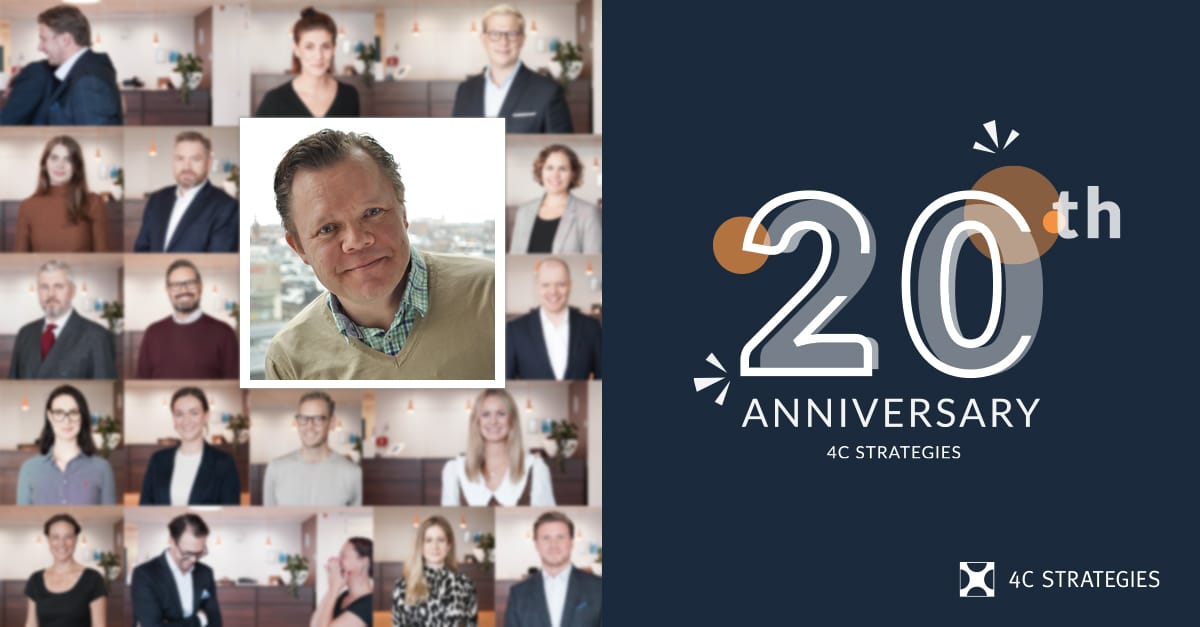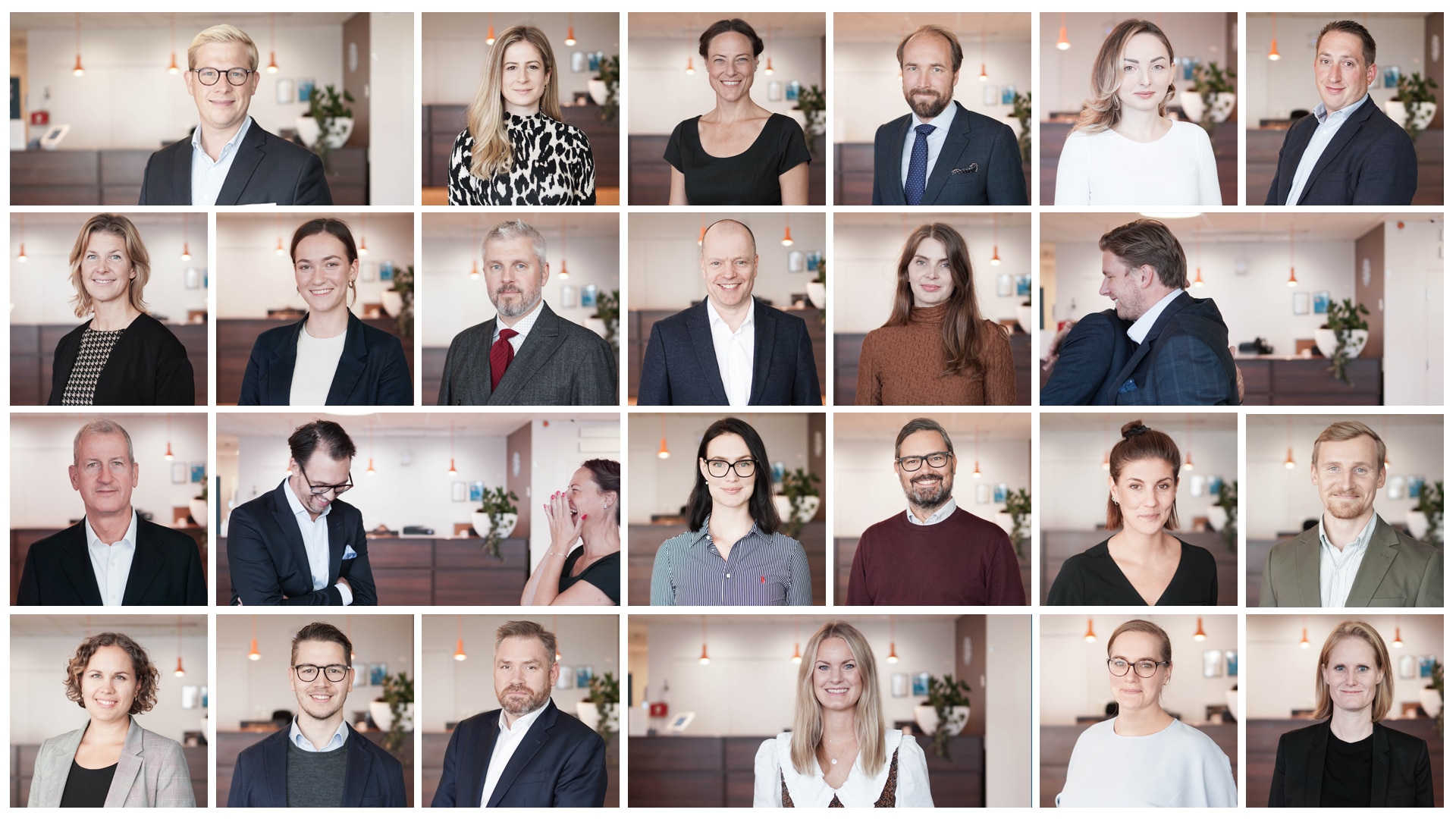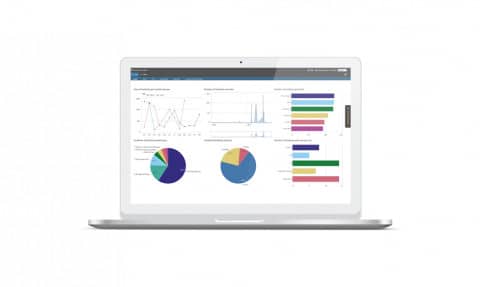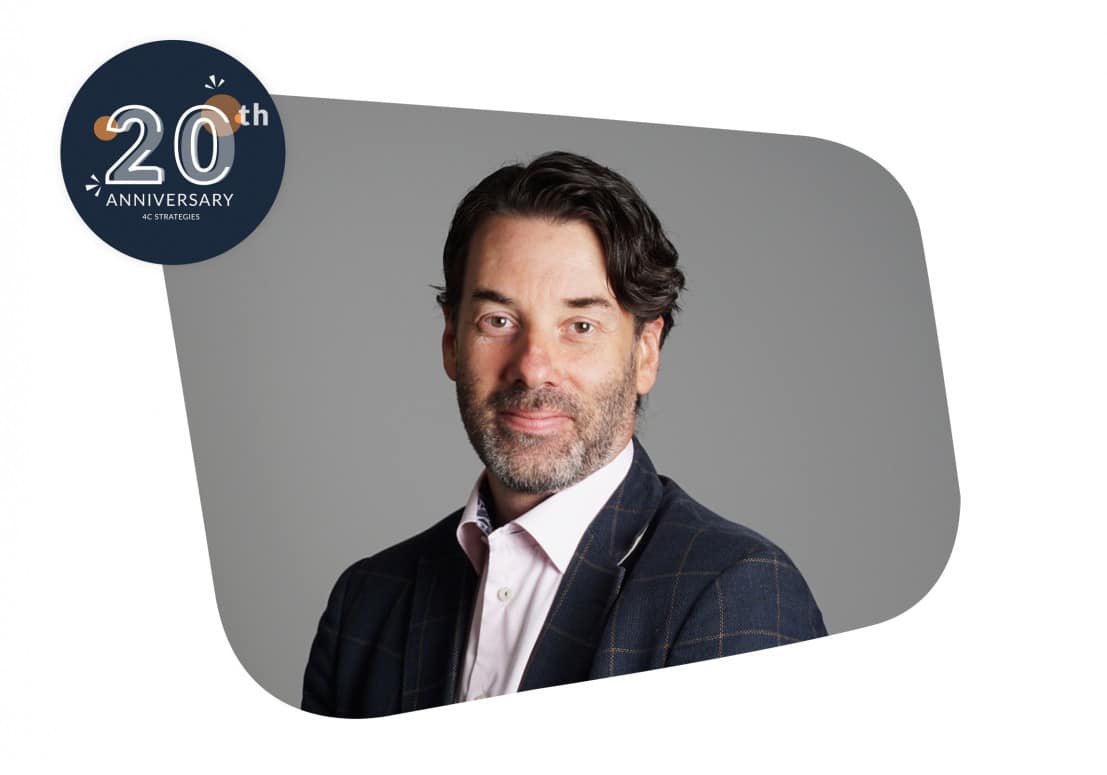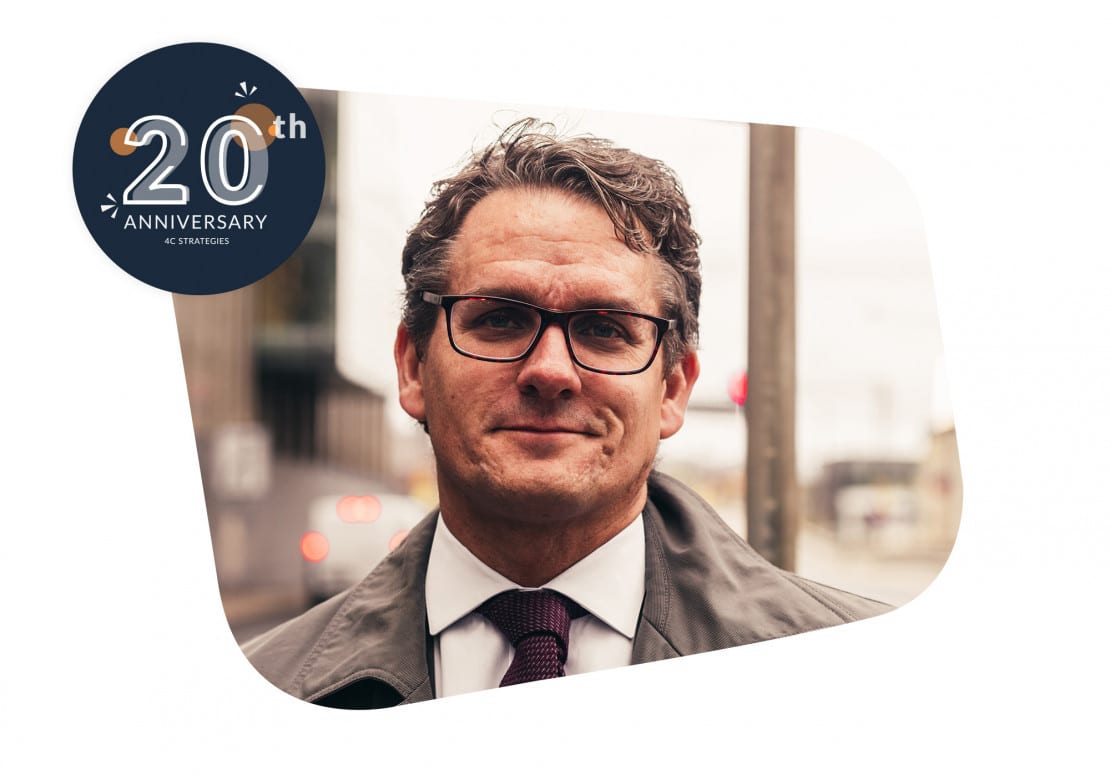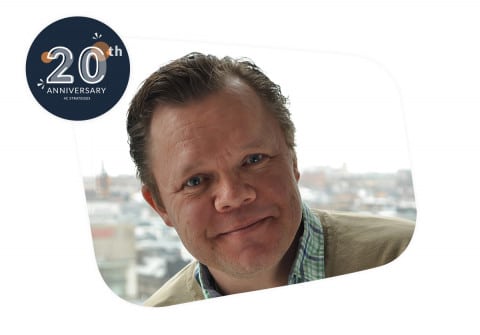
Magnus Bergqvist has been the CEO at 4C Strategies for almost a decade. With 4C celebrating 20 years in business this year, we talked to him about his thoughts on the company and where the industry is heading.
Magnus, how did you end up at 4C Strategies?
I joined the company in 2011 after leaving my position as VP SAP Nordic and Baltics. Basically, I wanted to leave the world of global conglomerates. After living and working in Europe and the US while at SAP, I felt it was time for a new challenge and I wanted to join a company where I could make a big difference. I’d been working with IT management consulting and software since the 90s and I saw real potential in 4C. After meeting the partners at the company it felt like the right move to become the new CEO.
What initial plans did you have for the company?
The company was doing well with clients in Sweden and the UK – including the Swedish Civil Contingencies Agency (MSB) and the British Army – but was reliant on consulting services for much of its income. We wanted to grow the market for the software – which was huge and to a large degree untapped. This meant changes. Taking product turnover from 20% to 50% meant we had to develop the software and approach customers differently, i.e. moving them from purchasers to partners where possible.
Did you succeed?
We did. 4C has always been in the enviable position of being able to finance software development and invest in intellectual property without bringing in external capital. A successful consulting business, that utilises the software but isn’t dependent on it, makes this possible. This was exactly what we needed to get Exonaut ready for a wider market and increase software sales in line with our consultancy services.
How have things changed since then?
We have continued to grow both our software and consultancy services, while opening new offices in London, Warminster, Malmo, Stockholm, Washington D.C. and Orlando. Of course, the challenge of balancing growth and stability, and how and where to invest, remains. When we entered the US market in 2016, for instance, we decided that we needed external financing to achieve our ambitions. So far this has been successful with close collaboration with our partner Priveq. We have gained a major foothold there, winning multiple contracts from the U.S. Army among others.
It’s not just in the US that we’ve grown, we’ve seen strong market growth in the UK and in some other European markets. I remember back in 2012 when a Swedish IT provider on the global market was the subject of a large-scale IT attack. We led the full investigation into it, which really lifted our profile in the industry. On the product side, we gained major clients like international airports, state and international banks and police forces, which were a direct result of software investments that were made for market growth.
Exonaut has always been evolving and continues at a pace today. It’s this journey that has led to it becoming NATO Secret and Unclassified accredited, and ultimately the de facto standard for military training and exercise management software.
Magnus Bergqvist, CEO, 4C Strategies
.grey-box { background-color: #d3d3d3; padding: 20px; }
How has Exonaut software developed?
Exonaut has always been evolving and continues at a pace today. It’s this journey that has led to it becoming NATO Secret and Unclassified accredited, and ultimately the de facto software for military training and exercise management. Today, it’s available in the cloud or on-prem. We have apps, so organisations can manage incidents and crises from their phones. And we’re talking about highly regulated industries, such as finance, infrastructure, and utilities. Some of the things you can do in Exonaut are totally unique. For instance, you can export data from a closed environment, such as a military base, to an open environment where you’re conducting military exercises, and securely import data back to the closed environment at a much later date.
Software
Exonaut Software
Request a demonstration of our Exonaut® software solutions for your risk, business continuity, crisis and exercise management needs.
Yes, I want a demo
Get in contact
What is the key to success at 4C?
As a company, I believe we’ve always been relevant. As attitudes to risk, business continuity management, operational resilience, and the like have changed – moving up the agenda in the boardroom – our offerings have developed and grown with these changes. Even though we have preached their importance since the early days and helped many organisations to improve, we have also grown our capabilities by employing more skilled and talented people and developing Exonaut. I mean, you just have to look at the world today. We are so IT-dependent, and this puts cyber-security and IT continuity at the top of every organisation’s risk agenda. Last year we produced a toolkit together with the European Cyber Security Agency for organizations that want to start a secure Information Sharing and Analysis Center (ISAC) – that’s a typical example of our relevancy.
Today we talk about total defence to deal with the rising threats that states and societies are exposed to. Agency collaboration at international organisations such as the EU and UN, and indeed within countries, is critical. And here I’m talking about police forces, customs, military and more. They all need to increase their situational awareness and readiness control, and we can, and do, help them with this. This is going to help drive our growth.
Where else can we expect to see growth at 4C?
Within the private sector, we are seeing new regulations for things like operational resilience, which is forcing organisations to look harder at their capabilities. COVID-19 has also had a profound impact on operational resilience, business continuity management and crisis management, where our consultants and software excel. This too, is a growth area for us.
However, we expect to see the biggest growth in the military side of our business. Since I have been with the company the number of international conflicts has declined involving NATO member states. Many countries have pulled out the majority of their forces from for example Afghanistan and Iraq. Focus has shifted – to a large degree – towards training and exercises. Exonaut can support the full scope of live, constructive and virtual exercises – helping soldiers and commanders to be better prepared for combat. As I mentioned earlier, Exonaut has become the de facto standard for military training and exercise management among NATO allied forces.
How will this growth impact the company?
Together, these factors are going to drive our growth as we move from a medium size company to a large, with several thousand employees over the next decade. In the near future I expect us to open offices in central Europe, Middle East, South East Asia and Australia. Naturally, there are barriers to our growth, but our strategy of opening an office where we have a military customer and expanding into the private and public sectors, has paid off so far and I expect it to continue. I also expect us to work closely with new partners in different countries.
We just have to look at 2020 to get a good indication of the potential for 4C. In the midst of global pandemic, we’ve employed over 30 new people and moved to larger premises in London and Orlando. Despite COVID-19, 2020 is still going to be a profitable year for the company. We are on our 20th year of economic growth, and I expect it to continue for 20 more. It’s exciting times at 4C Strategies.
Discover the rest of the 4C story
20 years of constant growth and contribution to a safer society
4C Strategies founder, Andreas Hedskog, shares his thoughts on the past, present and future of the company.
20 years of change: The past, present and future of operational resilience
4C Executive Vice President, Klas Lindström, discusses consulting, organisational resilience, and the company’s future.
